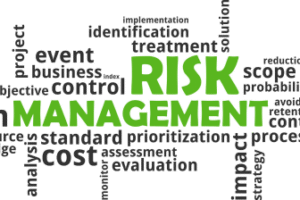
Want to Stand Out? Choose the Best Course After Graduation That Pays Off
Want to Stand Out? Choose the Best Course After Graduation That Pays Off
Having a graduation degree is no longer enough to secure a good career in today’s highly competitive job market. Every year, thousands of graduates enter the workforce, making it harder to stand out. The good news? Professional courses after graduation can help you gain that edge.
You may want a financially rewarding career in finance, a secure job in data analytics, or a role that makes a difference in business strategy. What you choose academically today can shape your future for years to come.
The challenge is selecting the best course after graduation—one that helps you succeed and boosts your earning potential.
This article explores how to make informed decisions and highlights the best courses after graduation to help you stand out.
Why 1 Year Courses After Graduation Matter
After graduation, many students feel pressured to accept any available job. However, taking a strategic break to invest in upskilling can pay off later. The right course can:
- Increase earning potential: Specialised skills command higher salaries.
- Enhance job security: Industries actively seek trained professionals.
- Boost career growth: Gain skills that unlock roles in larger corporations.
- Expand networks: Access mentors, recruiters, and industry peers through structured programs.
The key is to pick a course that aligns with market demand, your interests, and long-term goals.
Best Courses That Are Worthwhile
Here are some of the most rewarding postgraduate options across industries:
1. Financial Risk Management (FRM)
As global finance becomes more interconnected, risk management plays a vital role across industries.
Suitable for: Commerce, economics, and finance graduates.
Career options: Risk Analyst, Credit Risk Manager, Market Risk Consultant, Investment Banking roles.
Salary range: ₹6–20+ LPA depending on experience.
The demand for risk management professionals is rising in banks, investment firms, insurance providers, and fintech startups.
For those looking to pursue this path in India, GRMI (Global Risk Management Institute) offers an excellent programme in Financial Risk Management as part of their Post Graduate Diploma in Risk Management (PGDRM). Through GRMI, you can gain practical exposure, case studies, mentorship, and industry-relevant skills that make you job-ready and highly employable.
2. Post Graduate Program in Data Science
With data driving business decisions, companies rely on experts who can interpret and apply information effectively.
Suitable for: Engineering, mathematics, economics, and IT graduates.
Career options: Machine Learning Engineer, Business Analyst, Data Scientist.
Salary range: ₹7–25 LPA depending on position and experience.
This field is considered future-proof, as data is essential across sectors.
3. MBA with Specialisation
Though MBA is a traditional option, specialisation helps candidates stand out. Areas like finance, marketing, supply chain management, and business analytics are in high demand.
Suitable for: Graduates from any discipline aiming for management roles.
Career options: Management Consultant, Brand Manager, Product Manager, HR Business Partner.
Salary range: USD 2,000–6,000 monthly (especially from top-tier schools).
MBA programs are competitive and expensive, so it’s important to weigh their return on investment.
4. Chartered Financial Analyst (CFA)
For those aiming at investment banking, equity research, or portfolio management, this program offers in-depth training in analysis, reporting, and ethics.
Suitable for: Commerce, accounting, and finance graduates.
Career options: Equity Research Analyst, Investment Banker, Portfolio Manager.
Salary range: ₹6–25 LPA, increasing with experience.
5. Certified Management Accountant (CMA)
CMA is ideal for professionals aiming at financial planning, analysis, and decision-making.
Suitable for: B.Com, BA, BBA, and economics graduates.
Career options: Budget Analyst, Finance Manager, Cost Accountant.
Salary range: ₹5–15 LPA.
This internationally recognised certification gives professionals a strategic edge in finance roles.
6. Digital Marketing and Growth Hacking Certification
Both startups and MNCs are investing heavily in digital channels. Creative minds looking for career growth find this field highly rewarding.
Suitable for: Graduates from communication or business backgrounds.
Career options: SEO Manager, Content Strategist, PPC Specialist, Growth Marketer.
Salary range: ₹4–12 LPA with quick upward mobility for skilled professionals.
Digital marketing focuses on results, making skills more important than degrees.
How to Select the Right Course
Here are some pointers to help you choose the best course after graduation:
- Know your interests and strengths: Don’t follow the crowd—choose what excites you.
- Check market trends: Look for areas with growing demand and high pay.
- Evaluate ROI: Compare salary prospects with course costs and duration.
- Review placement support: Strong industry links increase job prospects.
- Consider flexibility: Online or hybrid courses are ideal if you plan to work while studying.
These steps ensure you pick a course that offers real value, not just another certificate.
Conclusion: Invest in Courses That Matter
The decisions you make after graduation can shape your career for years. Whether you’re aiming for finance, data, marketing, or strategy, a specialised postgraduate course can sharpen your skills and open doors.
The Global Risk Management Institute (GRMI) is at the forefront of industry-relevant programs. Based in India, GRMI offers a value-driven Postgraduate Diploma in Risk Management that blends theory with real-world practice. Designed with expert input, the program includes internships, soft skill development, and full placement support.
As employers increasingly value skills over degrees, programs like GRMI help bridge the gap between classroom learning and industry expectations. For anyone determined to get ahead, a course that delivers practical knowledge and career-ready skills is a worthwhile investment.
Choosing the best course after graduation can be a turning point—one that helps you stand out, earn more, and build a career worth striving for.
FAQ's
Q1. What are the advantages of taking a course for a year after graduation?
Ans. Without having to spend years in lengthy degree programs, a one-year course helps you acquire specialised skills, real-world experience, and increased employability.
Q2. For whom is a Financial Risk Management (FRM) course appropriate?
Ans. Graduates in economics, finance, or commerce who want to work in fintech, banking, investing, or insurance might think about FRM.
Q3. Is it possible to study FRM in India?
Ans. Yes, FRM is offered by organisations such as GRMI as a component of their Post Graduate Diploma in Risk Management (PGDRM), which blends classroom instruction with hands-on training.
Q4. Are one-year courses financially worthwhile?
Ans. Of course. Through improved employability, greater wages, and skills relevant to the sector, they offer a quick return on investment.
Q5. Can taking these courses aid in changing careers?
Ans. Yes, workers can effectively transfer into high-demand professions with the help of one-year studies in subjects like risk management, data analytics, as well as digital marketing.
You may also like

Best Short Term Courses in IT for Freshers

What is the Best Course in Risk Management in India?


